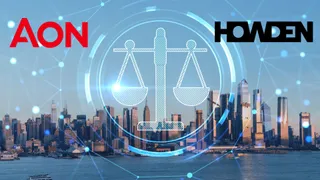
Trying to get lucky: have insurtechs missed their chance for funding?
Has the bubble burst? In the first quarter of 2022, insurtech funding dropped by more than half and stayed flat in Q2, while deal numbers continued to decline. They’re now at their lowest count since the end of 2020. Other analysts predict insurtech job cuts and declining consumer choice.
But deals are still happening, with $2.4 billion in the second quarter. To examine which insurtech businesses will continue to see success, Intelligent Insurer invited a panel of experts to its online hub for discussion and debate: Sebastián González, head of sales LatAm at Bdeo, which specialises in “automation and efficiency around inspection processes” in underwriting or claims, mainly for property and motor insurance; Todd Rissel, chief executive officer of e2Value, a web-based insurance-to-value solution that helps property and casualty and mortgage-related companies value their portfolios; Ross Wirth, head of client management technology at CyberCube, a cyber risk analytics platform for the insurance industry; and Justin Davies, head of region EMEA for Xceedance, which provides strategic operations support, technology, and data services to drive efficiencies for insurance organisations.
“Initial funding for Bdeo was typical of many, relying on the ‘three Fs’.” Sebastián González, Bdeo
Taking the longer view
Few deny there has been a slowdown in activity. “A year ago, capital was super cheap,” said Wirth. “People were throwing money all over the place for good ideas and teams that sounded like they knew what they were doing, and it was very much grow at any cost, and we’ll figure out the business model later type.”
As Rissel said, the market now was a little less “frothy” than in the recent past.
However, he added, taking a longer view (his company had been established for over two decades) the opportunities remain far greater than historically.
“Over the last six years or so the options have changed for us,” he said. “There are folks that didn’t exist six years ago who can fund, partner or acquire you.” Acquisition by an insurer, private funding or listing all remain options. Added to that, there is still significant interest in particular sectors, he argued.
“Say the word cyber today and people throw money at you.”
Davies agreed. Some had been over-valuing themselves in the past, but there was still funding for good businesses.
“We were probably seeing more opportunities two or three years ago than we are now, but there are enough investors out there that there’s still potential for organisations,” he said. They must, however, meet two conditions.
“As an investor, we’ve always been attracted to interesting ideas, but it has to be backed up by a very good team as well,” he said. “There’s no point in having the best idea in the world if you have a team who aren’t going to execute and, conversely, if you have a very good team but don’t have a great idea, it’s not going to work.”
“If you have a very good team but don’t have a great idea, it’s not going to work.” Justin Davies, Xceedance
Show me the money
The slowdown has brought and increased focus and urgency to seeing returns, according to Rissel.
“There is a lot of talk around whether you have clients and, if you’re not making money whether you have a view of when you’re going to start seeing a return for investors,” he said.
That’s true of investors’ willingness to fund businesses and opportunities with partners such as insurers. “As you get less frothy, people focus on the additional benefit you’re bringing to the process and how that is going to help,” Rissel said.
Again, however, that is not wholly different from in the past. According to González the initial funding for Bdeo was typical of many, relying on the “three Fs”: friends, family and fools. Only once it had reached out to insurers was more formal funding easier to find.
“Once we had those first customers and started to validate the technology and the value we were offering, it was very natural getting interest from the more robust and professional funds,” he recalled.
As Davies put it: “Ultimately, the value of a company is driven by the time to profitability.”
However, when it comes to other advice as to what insurtechs should be doing to maximise their chances of securing funding or partnerships, there’s a final factor that is often overlooked. “Be lucky,” he advised.
Among the companies Xceedance has invested in, for instance, there is one it found because a team member sat next to the company’s CEO at a conference.
“They had the two things that we were looking for: a good understanding of technology and insurance, but there was also a bit of luck involved.
“Hard work, sweat and having a good team are vital, but there’s always an element of luck in business.”
Already registered?
Login to your account
If you don't have a login or your access has expired, you will need to purchase a subscription to gain access to this article, including all our online content.
For more information on individual annual subscriptions for full paid access and corporate subscription options please contact us.
To request a FREE 2-week trial subscription, please signup.
NOTE - this can take up to 48hrs to be approved.
For multi-user price options, or to check if your company has an existing subscription that we can add you to for FREE, please email Elliot Field at efield@newtonmedia.co.uk or Adrian Tapping at atapping@newtonmedia.co.uk
Editor's picks
Editor's picks
More articles
Copyright © intelligentinsurer.com 2024 | Headless Content Management with Blaze

